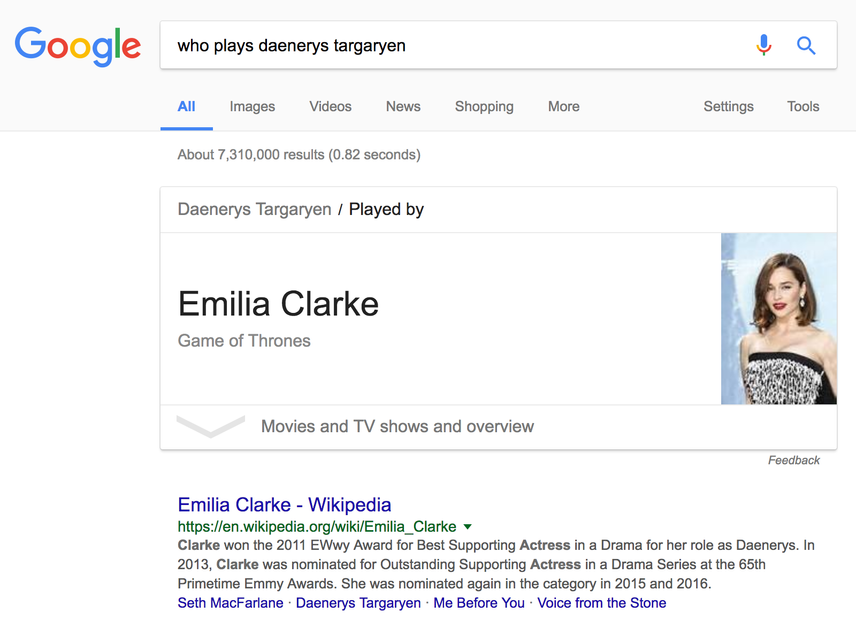Content Optimization to Boost Your SEO Performance
Keeping your website up to date is essential for your success. The right optimization of your existing content can generate more organic and social media traffic, as well as to improve the overall user experience.
The key is to incorporate the right keywords, readable copy, and eye-catching visuals. Optimize. Analyze. Repeat. Your content is never done.
Do you feel you deserve a better ROI from your existing content? More visitors, and more conversions? You've crafted your content with tender, loving care but nobody's actually reading it. That's a shame, right?
In this article, I'll show you the two-step process for optimizing your content and getting better returns.
The first step is to create a content inventory, essentially making a list of all the content on your website. And the second step is to actually optimize the content.
Step 1: Content Inventory
Before you can optimize, you need to know what content you have and what state it's in.
Put all your website's content in a spreadsheet, and for each page fill in:
- Goal(s) you want to achieve
- Target audience
- Keywords you want to incorporate
- The degree to which you are happy with its:
- organic traffic and conversions (last 12 months)
- social traffic and conversions (last 12 months)
- usability (pick from: Bad, Needs work, Good)
Your web analytics suite should be able to give you the traffic and conversionConversion
Conversions are processes in online marketing that lead to a defined conclusion.
Learn more numbers.
How do you actually map all your website's content? A tool such as ours can do this for you. It lets you build an overview of all the content on your website, which you can then export to a CSV file.

Soon you'll see there's plenty of work to do! If you've got a lot of content, it's likely that some pages won't have a clear goal or target audience. Other pages may need to be optimized because you put little to no thought into what keywords they should be ranking for. And you'll also encounter pages that are over-optimized to the point that they are barely readable to humans.
Fill out the spreadsheet so it's abundantly clear what role each page plays in your website.
Step 2: Content Optimization
Thanks to the content inventory, you now know what pages need your attention most. Let's get to work!
More Organic Traffic
Get more organic traffic from existing content: incorporate the right keywords and increase your click-through-rate (CTR).
The Right Keywords for the Right Pages
It almost goes without saying, but let's emphasize it anyway: if you don't incorporate the right keywords in the right pages, these pages will not rank well for these keywords. But how do you do that effectively to increase the findability of these pages?
Make these elements your priority:
- Title: incorporate keywords at the start of the title. Aim for a title length of between 30 to 60 characters (pixels: between 285 and 575).
- Meta description: incorporate keywords into the meta descriptionMeta Description
The meta description is one of a web page’s meta tags. With this meta information, webmasters can briefly sketch out the content and quality of a web page.
Learn more. When people are searching for these keywords, they'll be bolded in the snippets. This makes it more eye-catching, which in turns leads to more clicks. Keep your meta description length between 70 and 150 characters (pixels: between 430 and 920). - H1 heading en H2 heading(s): incorporate the keywords into these headings.
- Body content: incorporate the keywords into the body text as well.
- Internal linksInternal links
Hyperlinks that link to subpages within a domain are described as "internal links". With internal links the linking power of the homepage can be better distributed across directories. Also, search engines and users can find content more easily.
Learn more to pages: build internal links to the page in question with important keywords as anchor textAnchor Text
An anchor text is the text displayed on a website for a given link.
Learn more. - Image optimization: images are content too. Make sure you incorporate your keywords in the image's filename, alt tag, and title tag. Read more on optimizing images here.
IMPORTANT
Be sure to use your keywords in singular and plural form. Don't be afraid to use related words and synonyms in the same page. That's normal, so that's what search engines expect to see.
An example of what NOT to do
Tax lawyer New York
Are you looking for a tax lawyer New York? Don't look any further! This tax lawyer New York can help you get out of trouble with all your tax lawyer New York issues.
Contact tax lawyer New York
Want to know more? Feel free to contact tax lawyer New YorkDon't force in keywords. If incorporating (more) keywords leads to readability issues, then always choose the user over the search engine.
Improve Click-Through-Rate (CTR)
Another common issue: your pages rank well in the organic search results, but you're getting a low CTR. You've already put in all that effort to rank well, but you're not reaping the benefits.
Follow these best practices to increase your CTRs:
- Experiment with the title and meta description: are they too long, or too short? Are the keywords incorporated? Are they easy to read? Is there a clear call-to-action?
- Stand out: make sure you're different from your competitors. Think outside the box. Take reviews, for instance. Google shows stars for pages with reviews. That's a major differentiator, it makes you stand out and look good! Read more here .
- Google Rich Answers: lots of Google users ask Google a question. If your content answers that question, then Google may try to answer it directly from the search engineSearch Engine
A search engine is a website through which users can search internet content.
Learn more result page (SERP), all the way at the top of the page. More on that here .

Useful resources
More Social Media Traffic
Do you know what your pages look like when they're shared on social media? 99% of the time there's a lot of room for improvement. Many website owners don't realize that they can influence the appearance of their page on social media platforms. This can be done using Open Graph (Facebook and LinkedIn) and Twitter Cards (Twitter).
To make sure you stand out on Facebook and Twitter, pay close attention to:
- Title: make sure it's catchy, and experiment with using capitals for each word, like in the example above. Make sure your title length doesn't exceed 80 characters (for Twitter, the magic number is 50).
- Description: the description should trigger users. Make sure it's no longer than 200 characters on Facebook, and no longer than 150 characters on Twitter.
- Images: choose images that attract attention. Experiment, and research what works best for you.
A lot of content management systems provide support for Open Graph and Twitter Cards. Many SEO plugins already support them—adding them is as easy as filling in a title and meta description. Since it's hard to check manually whether you filled in your Open Graph and Twitter Card data correctly, automating it with a tool such as ours is a huge timesaver.
Improved Usability
Search engines will never buy anything from you. Users do that, so focus on them. Make sure they have a great experience on your website.
Answer the Search Query
Is your page answering a user's search query? Search engine users are often searching for the answer to a specific question. If your page doesn't provide the answer (quickly), visitors will hit the "Back" button and check another website. Objectively look at your page to verify that you answer the user's search query in a quick and easy way. If you don't, adjust the page. If you do, then see if you can make the page even more useful to your users by using any of the content ideas below:
- Infographics
- Videos
- Frequently asked questions
- Reviews
- Links to external websites for more background information
Content Pruning
Sometimes, less is more. This holds true for content too. The process of removing unnecessary, bloated content is called "content pruning". The idea is that you create more focus and readability by removing distracting and irrelevant content. Keep the user in mind, and prune away!
Rewrite and Update Content
There's tremendous value in rewriting and updating content. Think about important trends and development that may make your content outdated. Rewrite and update it to retain and increase its value over time. This also gives you a good reason to promote that content again.
Take this example: in the Netherlands, the minimum wage is adjusted twice a year, on January 1 and July 1. How valuable is your content about the minimum wage after the minimum wage has been adjusted? Slate that content for update twice a year and put it on your editorial calendar so you don't forget. Also, use it as an opportunity to re-evaluate the content. In this specific case, think about adding a calculator that converts the minimum gross wage to net wage and factors in age. Wouldn't that make this page more valuable?
Readability and Attractiveness
Imagine this: you're searching for something on Google, you click on one of the results and the next thing you know, you're squinting at a huge chunk of text, without paragraphing, headings, or images. Would you want to read that, or would you quickly jump ship and go to one of the other results?
Prevent this behavior by:
- Applying a visual hierarchy in the content by using (sub) headings. A lot of users scan content, looking for the section that's important to them. Having headings supports that.
- Separate paragraphs to increase the readability of the text.
- Support your text visually. Use images and videos wherever you can to add to the content's appeal and make your point.
Conclusion
It's an absolute waste of your content if it doesn't give you a good ROI. With a little effort, you can turn it around and have your content work for you.
Optimize. Analyze. Repeat. Remember: your content is never done.
Here at Conductor we strive to take the guesswork out of SEO.
Optimizing your website from more organic and social traffic is a continuous process, and your tooling and work-flows should be continuous as well.
We're interested in knowing your opinions on or experience of the topics raised in this article. Or maybe you've gained other experience we didn't touch on. Either way, we'd love to hear from you.







